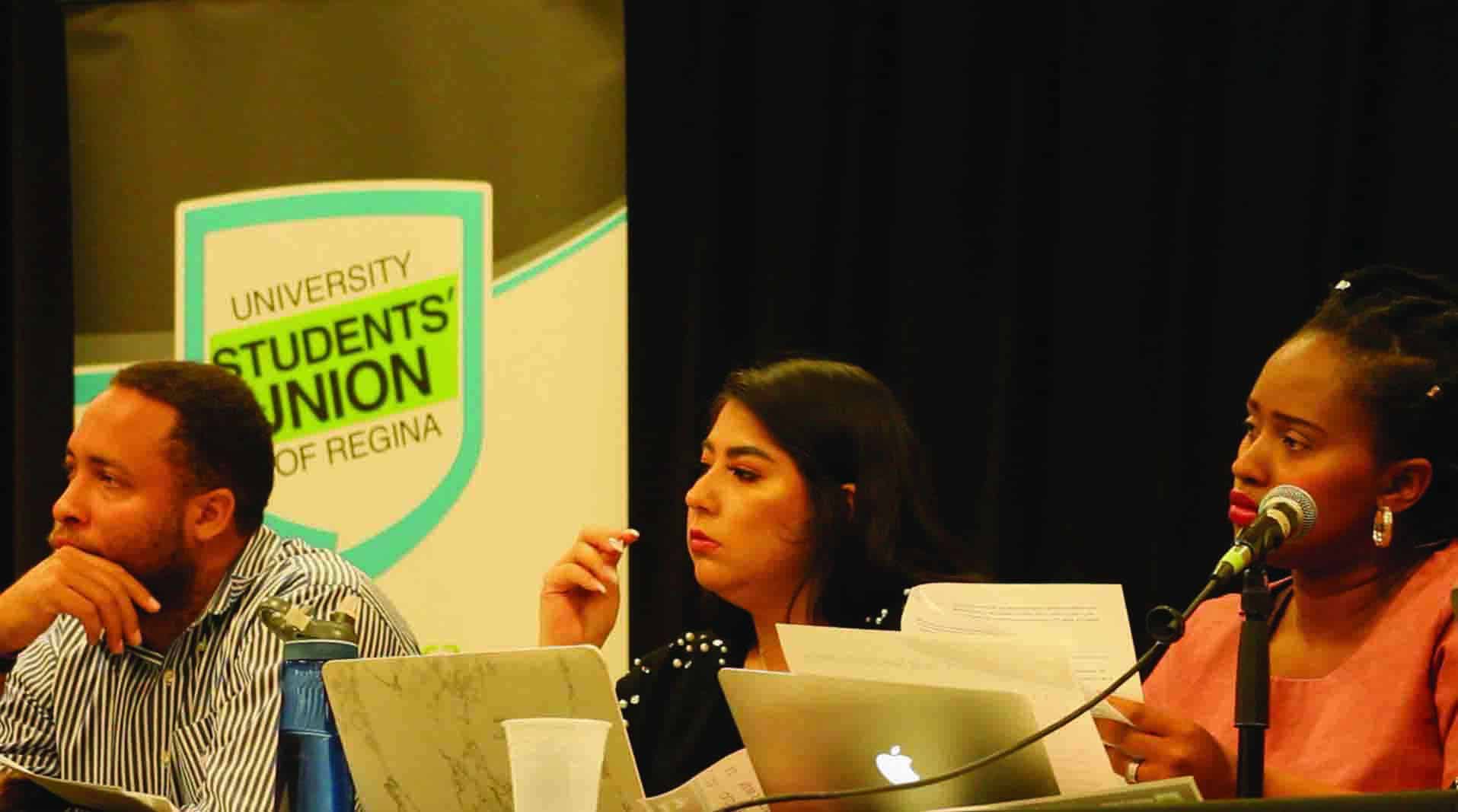A wider net

 After a referendum split the population, the Days of Activism brings it back together
After a referendum split the population, the Days of Activism brings it back together
John Cameron
Editor-in-Chief
Not every organization would view a 16-day campaign of activism against gender violence as a starting point for something. The Regina Public Research Interest Group (RPIRG) and its director, Jenn Bergen, did.
Though a local version of the internationally-recognized 16 Days of Activism Against Gender Violence campaign will be coordinated by the University of Regina’s women’s centre, the women’s centre will also be working with RPIRG, UR Pride, and the U of R’s Students’ Union to work on another campaign – one that brings activists of all stripes together to raise awareness of activism among the student body.
“[We] wanted to include days of action that don’t necessarily fall into the traditional 16 days of activism, and by doing so have a wider umbrella of activities that people can participate in,” Bergen explained.
Those days of action include World AIDS Day, which UR Pride will be campaigning around, and a local forum on sustainability that RPIRG will be promoting.
But days of action are not the only purpose for the 16-day collaboration between the Riddell Centre-based groups. One of the reasons that the different groups are working together is the fact that it means working together.
“I think this might be the first time as far back as I can remember that UR Pride, the women’s centre, the students’ union and RPIRG have ever worked on a campaign together,” Bergen said. “I think as student groups, it’s important for us to work together, and this campaign is one way we can do that.”
UR Pride board chairperson Leah Keiser agreed, “[One of the things] we were hoping to get out of the 16 days of activism was maybe some contacts for some of the other groups, to be like, ‘Hey, do you guys need any help running your event?’”
Keiser pointed out, “during the entire [Canadian Federation of Students] referendum was [that] everybody had assumed that their little pocket of active individuals on campus was the only pocket of active individuals on campus,” and opined that the more diverse campaign that the U of R’s 16 days of activism represented was a, “lovely little follow-up to that.”
The events promoted by the various groups are meant to keep up the energy that students worked up getting involved with the CFS referendum, and meant to get them informed about things that are ongoing in their community.
“I think it’s important that, being a university student especially, part of your learning comes from what you do outside of the classroom … at RPIRG, we feel that’s what we do,” Bergen said. “…We want to make sure people know about all the different ways that [learning] can happen.”
She added, “We think that it is normal for people to want to be involved in the decision-making processes in the communities that they live in, and that we can facilitate that.”
For Bergen, getting involved can mean participating in events like the CFS referendum, but it can also mean smaller-scale commitments to activism, like carpooling or getting coffee in a reusable cup.
“We just want to encourage students to be engaged citizens, and for people to realize that there are a variety of ways to do that besides holding a sign and megaphone at a rally,” she said. “Although that is one avenue of activism, there are lots of other ways that you can be an engaged person, so we just want to make sure that people don’t think this campaign is just about that sort of big-time rally.”
“I think that every student on campus can find something that they can be passionate about,” Keiser agreed. “… It’s not even about groups on campus holding specific events … I think one of the larger things that they’re pushing is smaller involvement, and the whole concept of the fact that if we all get involved in a little way that’s going to make a huge change.”
Bergen said that, while she’d consider the campaign a success if it encouraged slightly bigger attendance at some of the events, the campaign was mostly about making people aware of the activism going on at the U of R. “People will know that the UR Pride centre exists and what resources it offers. They’ll know the women’s centre exists and what programming they offer. They’ll know about the funding RPIRG offers for student projects. And they’ll know that the Students’ Union can advertise events like this.”
Keiser agreed – the important thing isn’t just getting involved, it’s letting people know that they can get involved. “I think it’s really important for students to start doing this kind of work because we can. We can be louder than the general population. I think this is an easy place to start.
“We assume that people attending this university have a vested interest in bettering something about society or they wouldn’t be attending the university, right?”









